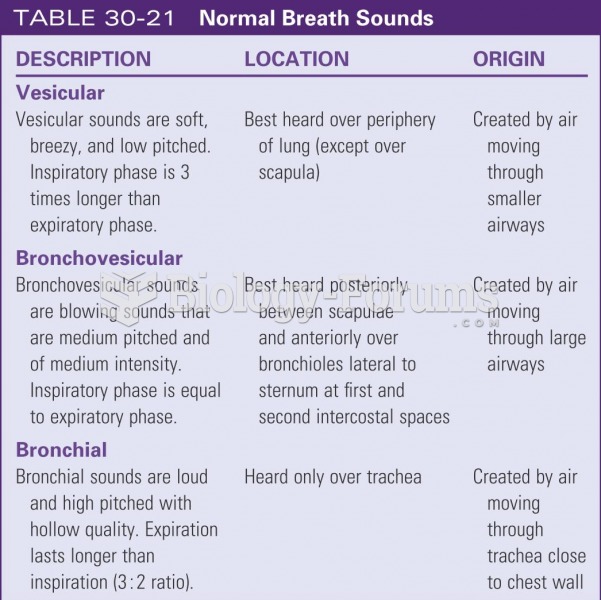|
|
|
Cytomegalovirus affects nearly the same amount of newborns every year as Down syndrome.
Dogs have been used in studies to detect various cancers in human subjects. They have been trained to sniff breath samples from humans that were collected by having them breathe into special tubes. These people included 55 lung cancer patients, 31 breast cancer patients, and 83 cancer-free patients. The dogs detected 54 of the 55 lung cancer patients as having cancer, detected 28 of the 31 breast cancer patients, and gave only three false-positive results (detecting cancer in people who didn't have it).
Earwax has antimicrobial properties that reduce the viability of bacteria and fungus in the human ear.
The term pharmacology is derived from the Greek words pharmakon("claim, medicine, poison, or remedy") and logos ("study").
People with high total cholesterol have about two times the risk for heart disease as people with ideal levels.






